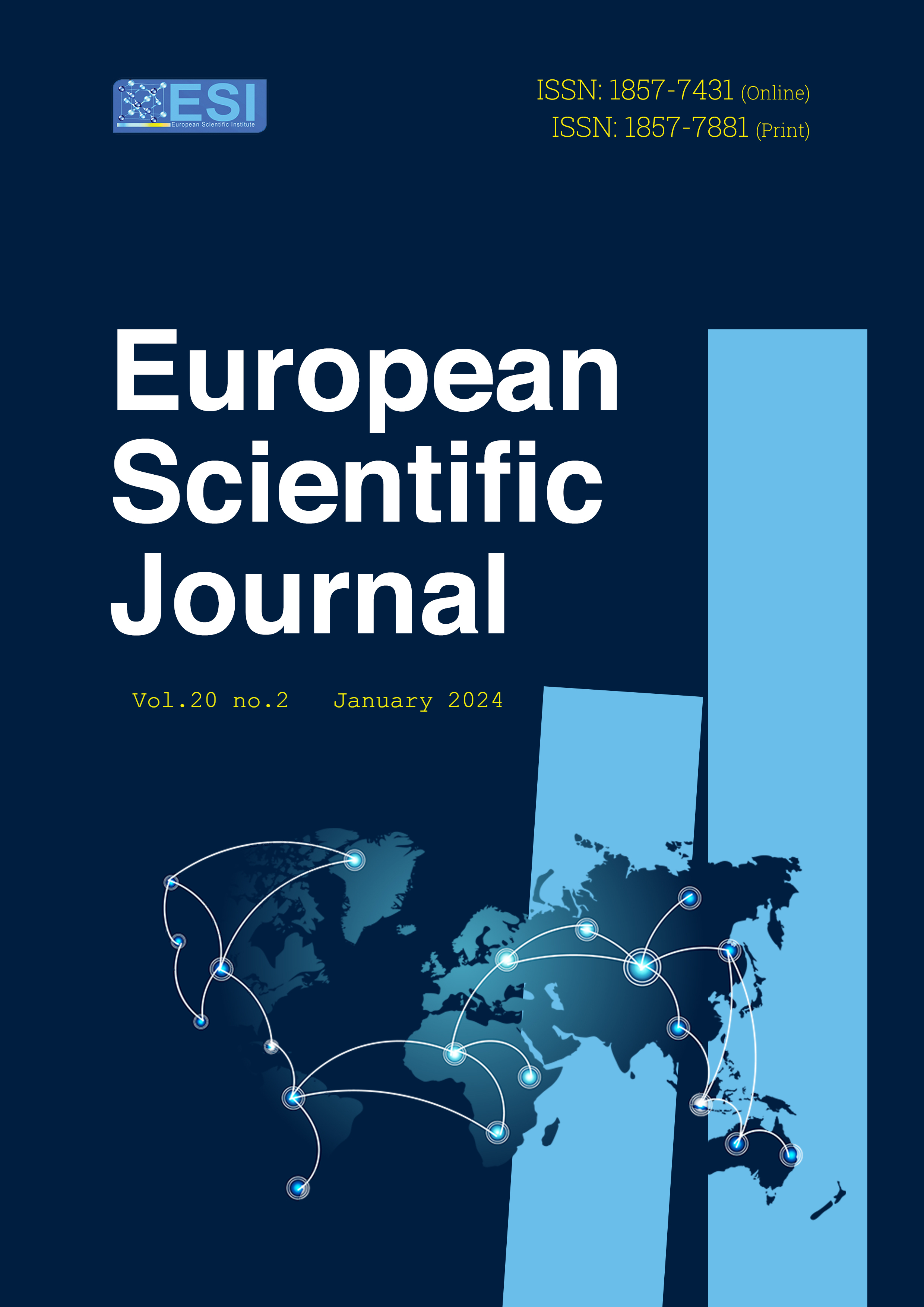A Critical Study of Matthew 18:15-18 in New Testament Greek and Selected Akan Mother-Tongue Translations: Implication for Peace-Making in Ghana
Abstract
Recent global research reveals a world characterised by increasing fragmentation, diminished peace, and mounting risks for future generations. Diverse conflicts, ranging from familial to national issues, persist, even among individuals sharing the same faith. In Africa, nations like Cote d’Ivoire, the Democratic Republic of Congo, Burundi, Rwanda, the Central African Republic, and Sierra Leone grapple with severe consequences of conflicts. In Ghana, pockets of ethnic discord impact education, healthcare, and social services, prompting the emigration of skilled professionals. Despite ongoing peace efforts in Ghana, effective approaches are crucial. With over 70% of Ghanaians identifying as Christians, contextualising peace-making within sacred texts becomes imperative. In this exploration, the study delves into a biblical approach, specifically scrutinising Matthew 18:15–18 through exegetical analysis in Greek language and mother-tongue hermeneutics. These approaches reveal a convergence between the biblical author’s original meaning conveyed in the Greek language and its interpretation in the mother tongue. The paper advocates private conflict resolution to avoid gossip, involving witnesses if needed and church leaders if the issue persists. Disciplinary measures may be necessary, emphasising personal dignity and adherence to God’s will. The paper significantly contributes to conflict resolution knowledge, providing valuable insights for fostering peace in Ghana and beyond.
Downloads
PlumX Statistics
References
2. Asamoah, Emmanuel Foster. (2020). “The Bible and Akan Traditional Religious Values: A Search For Dialogue.” Journal of Mother-Tongue Biblical Hermeneutics and Theology (MOTBIT) 2(2): 78-86.
3. Asamoah, Emmanuel Foster. (2022). “Towards Solving the Synoptic Problem for African Biblical Exegesis.” Journal of Arts and Humanities 11(5): 41-50.
4. Asante-Twi Twerɛ Kronkron. (2012). “The Asante-Twi Holy Bible.” BSG/UBS.
5. Asante-Twi Twerɛ Kronkron. (2020). “The Asante-Twi Holy Bible.” BSG/UBS.
6. Asante-Twi Twerɛ Kronkron. (2021). “The Asante-Twi Holy Bible.” BSG/UBS.
7. Barnes, Albert. (2005). New Testament Commentary, Power Bible CD. Bronson, MI: Online Publishing, Inc.
8. Ben-Nun, Liubov. (2021). Social Dynamics of Gossip. Israel: B. N. Publication House.
9. Danquah, J. B. (1968). The Akan Doctrine of God. Second Edition with new introduction by Kwesi A. Dickson. London. Frank Cass & Co. Ltd.
10. Ekem, John David Kwamena. (2009). Priesthood in Context: A Study of Priesthood in Some Christian and Primal Communities of Ghana, and Its Relevance for Mother-tongue Biblical Interpretation. Son Life Press.
11. Ezeogamba, A. (2019). Reconciliation (Matt 5:21-26): Inevitable Condition For Authentic Worship Of God. Retrieved from https://doi.org/10.31227/osf.io/nruxa.
12. Fee, Gordon, D. (2002). New Testament exegesis: A handbook for students and pastors. Westminster John Knox Press.
13. Ghana Statistical Service (GSS). (2010). Population and Housing Census: Summary Report of Final Results. Accra: Sakoa Press Ltd.
14. Global Network of Religions for Children. (2018). “The Need for Peaceful Coexistence”. Retrieved on August 22, 2022, https://gnrc.net/en/blog/3942-the-need-for-peaceful-coexistence.
15. Institute for Economics & Peace, Global Peace Index 2022. (2022). “Measuring Peace in a Complex World” Sydney, June 2022, 10. Retrieved from http://visionofhumanity.org/resources.
16. Kariuki, Francis. (2015). Conflict Resolution by Elders in Africa: Successes, Challenges and Opportunities. Available at SSRN: http://dx.doi.org/10.2139/ssrn.3646985
17. Ladd, George Eldon. (1994). A theology of the New Testament. Wm. B. Eerdmans Publishing.
18. Mustajoki, Arto Samuel. (2015). Causes of Misunderstanding, Revised by Matthew Billington. Retrieved from https://375humanistia.helsinki.fi/en/arto-mustajoki/causes-of-misunderstanding.
19. Nelson, D. L. and Quick J. C. (1977). Organisational Behaviours Foundations, Realities and Challenges. New York: West Publicly Co.
20. Nipkow, K. (2003). God, Human Nature and Education for Peace: New Approaches to Moral and Religious Maturity. London, Routledge. https://doi.org/10.4324/9781315197234.
21. NIV Cultural Backgrounds Study Bible. (2016). The Gospel of Matthew. Grand Rapids, MI: Zondervan.
22. Nun, Ben. (2021). “Social Dynamics of Gossip.” Israel: B. N. Publication House.
23. Nwoma Krɔnkrɔn. (2019). The Fante Full Bible, BSG/UBS.
24. Obeng, Ignatius Joseph. (n/d). Conflicts and Peace Studies, Lecture notes. Winneba, GH: University of Education.
25. Paffenroth, K. (2016). “Greg Garrett, Entertaining Judgment: The Afterlife in Popular Imagination,” Theology, 119(1): 50-52. Retrieved from https://doi.org/10.1177/0040571X15605461h.
26. Rydelnik, Michael, and Michael G. Vanlaningham, eds. (2014). The Moody Bible Commentary. Chicago: Moody Publishers.
27. Tenney, Merrill C. (2003). New Testament Survey. Revised by Walter M. Dunnett. Grand Rapids: Wm. B. Eerdmans Publishing Company.
28. Thayer, Joseph H. (1997). “Thayer’s Greek-English Lexicon of the New Testament. 4th.”
29. The Holy Bible (Twerɛ Kronkron). (2013). New Testament English-Twi Version. Ghana: New Word Publishing (GH) Limited.
30. The Holy Bible. (Twerɛ Kronkron) (2012). New Testament English-Twi Version. Ghana: New Word Publishing (Ghana) Limited.
31. Tsikata, Dzodzi, and Wayo Seini. (2004). “Identities, Inequalities and Conflicts in Ghana” Working Paper 5. Retrieved from https://assets.publishing.service.gov.uk/media/57a08cbbe5274a31e00013e0/wp5.pdf.
32. Van der Geest, Sjaak. (1998). “Ɔpanyin: the ideal of elder in the Akan culture of Ghana.” Canadian Journal of African Studies/La Revue canadienne des études africaines 32(3): 449-493.
33. Villiers, D. (2006). “Gee die Bybel nog vandag aan ons morele oriëntering oor kwessies soos homoseksualiteit,” Acta Theologica, 26, 54-78.
34. Wiersbe, Warren W. (2007). The Wiersbe Bible Commentary: New Testament. David C Cook.
Copyright (c) 2024 Emmanuel Foster Asamoah, Ebenezer Tetteh Kpalam

This work is licensed under a Creative Commons Attribution 4.0 International License.








